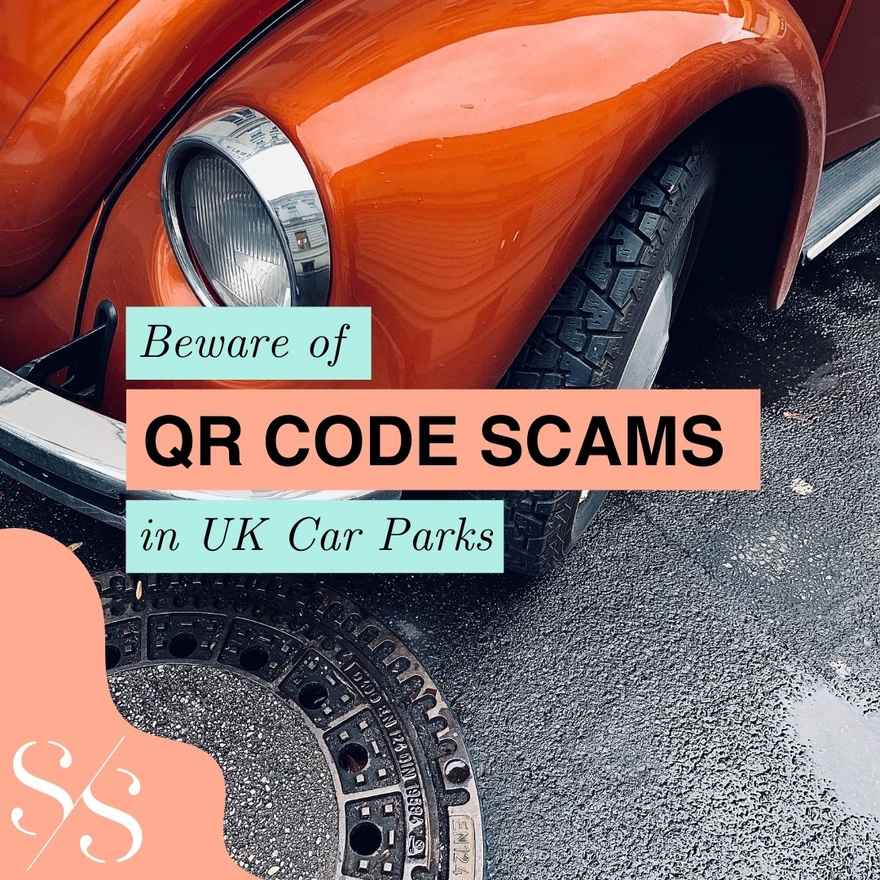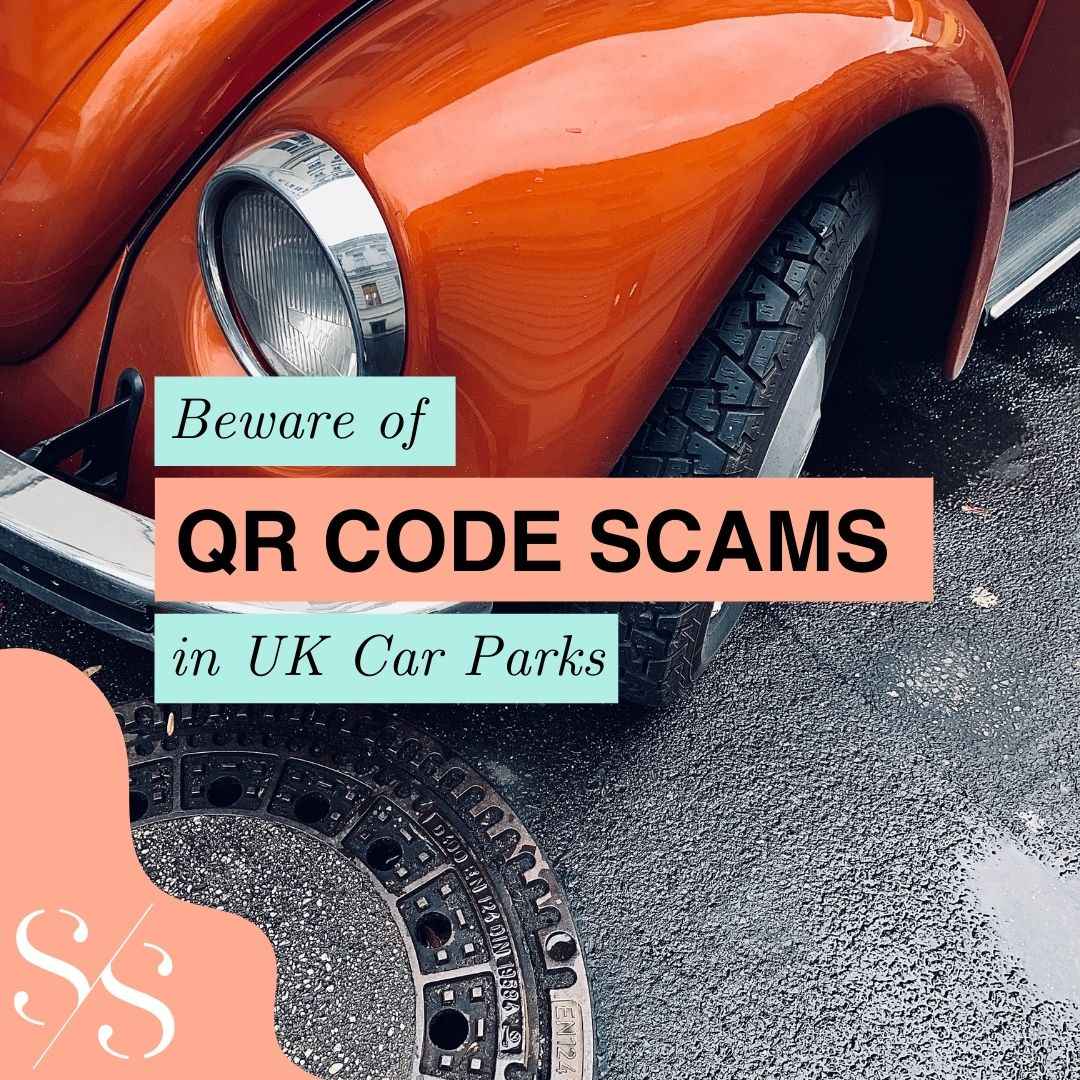Beware of QR Code Scams in UK Car Parks

Beware of QR Code Scams in UK Car Parks
In today's digital age, QR codes have become a convenient tool for accessing information, making payments, and even checking into locations. Their ease of use has made them a popular choice for businesses and consumers alike. However, with this convenience comes a new breed of scam targeting unsuspecting drivers in the UK. This blog post aims to shed light on the emerging QR code scam happening at car parks, how it works, and steps you can take to protect yourself.
The Convenience of QR Codes
QR codes, or Quick Response codes, are two-dimensional barcodes that can be scanned using a smartphone to quickly access websites, make payments, or retrieve information. They are incredibly useful in various everyday activities, such as:
- Parking payments
- Restaurant menus
- Product information
- Event check-ins
Their widespread adoption has made life easier for many, but unfortunately, it has also created new opportunities for scammers.
The QR Code Scam Targeting Car Parks
Scammers are now exploiting the trust and convenience associated with QR codes by targeting car parks across the UK. Here’s how the scam typically unfolds:
- Fake QR Codes: Scammers print fake QR code stickers and place them over legitimate QR codes on parking payment machines.
- Drivers Scan the Fake Codes: Unsuspecting drivers scan the fake QR codes with their smartphones, thinking they are paying for parking.
- Redirect to Scam Websites: The fake QR codes redirect drivers to fraudulent websites that look similar to legitimate parking payment sites.
- Payment Information Stolen: Once drivers enter their payment information, it is captured by the scammers, leading to potential financial loss and identity theft.
How to Protect Yourself from QR Code Scams
While QR code scams can be sophisticated, there are several steps drivers can take to avoid falling victim:
- Inspect the QR Code: Before scanning a QR code, inspect it closely. Look for signs of tampering, such as stickers placed over the original code.
- Verify the Source: Ensure that the QR code is from a trusted source. If in doubt, manually enter the URL of the parking payment site into your browser.
- Use Trusted Apps: Use parking apps from trusted providers rather than scanning random QR codes.
- Enable Security Features: Enable security features on your smartphone, such as warning prompts before visiting unsecured websites.
- Stay Informed: Keep updated on the latest scams by following local news and updates from organisations like Action Fraud.
Reporting Incidents
If you suspect you’ve encountered a QR code scam, it’s crucial to report it immediately to help prevent others from falling victim. Here’s how you can report incidents:
- Contact Your Bank: If you’ve entered your payment information, contact your bank immediately to cancel your card and monitor for fraudulent activity.
- Report to Action Fraud: Report the scam to Action Fraud, the UK’s national fraud and cybercrime reporting centre.
- Inform the Car Park Operator: Notify the car park operator so they can remove the fake QR codes and alert other users.
Other QR Code Scams
Scammers are not just targeting car parks; they are using QR codes in various other contexts to trick people. Some other common QR code scams include:
- Fake Charity Donations: Scammers create fake QR codes for charitable donations, especially following natural disasters or crises.
- Phishing Attacks: QR codes in emails or messages that lead to phishing websites designed to steal personal information.
- Fake Product Information: QR codes on counterfeit products that lead to fake websites, compromising consumers' safety and privacy.
Facts and Stats About Scams in the UK
Scams continue to be a significant issue in the UK, with many individuals falling victim each year. Here are some recent statistics:
- Increase in Scams: According to UK Finance, scams rose by 41% in 2021 compared to 2020, highlighting the growing threat. (Source: UK Finance)
- Financial Loss: The total amount lost to scams in the UK in 2021 exceeded £2.35 billion, marking a substantial increase. (Source: UK Finance)
- Common Targets: The most frequently targeted groups for scams include individuals aged 55 and older, as well as small business owners, with reports indicating a rise in online scams affecting these demographics. (Source: Action Fraud)
Conclusion
In an era where digital convenience is at its peak, it's crucial to remain vigilant and aware of potential scams, especially those involving QR codes. By taking a few simple precautions, you can protect yourself from falling victim to these malicious schemes. Remember to inspect QR codes, verify their source, and report any suspicious activity immediately.
Stay informed, stay alert, and stay safe in the digital age. For more tips and updates on protecting yourself from scams, follow our blog and join our community of informed drivers, consumers and business owners.
Have you encountered a QR code scam?
Share your experience and tips in the comments below to help others stay safe.
Stay Safe
Sarah Cornforth
Safe Solutions UK
Recent Articles
Check out our most recent blog articles below.





0 comments
Leave a comment
Please log in or register to post a comment